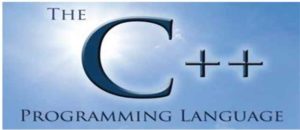Tips On Selecting A Blogging Platform To Get Your Voice Across
Blogging is one of the best ways to connect to the world. Not only will you be able to express yourself through written content, but you can also add images and videos to create more impact.
If there’s a topic or product that you’re passionate about and want to share it with others through the written format, blogging is definitely for you. However, before you start publishing your content, you need to choose a blogging platform that’ll better serve your purpose.
There are several blogging platforms that you can choose from and it can get confusing. Each platform has its pros and cons, and it’s up to you to determine what’s best for you. Blogging experts, like sitebeginner.com, list the pros and cons of the most popular platforms to help you decide.
As a tip, here are some of the pros and cons of famous blogging platforms:

WordPress.com.
Pros:
WordPress.com is very popular, especially to someone who just started blogging. Although the basic platform is free, you can upgrade when you have more budget. It’s a blogging platform that has millions of users and plenty of themes to choose from. They have great support, easy to understand tutorials, and a large community that can help you out with your questions and concerns.
Cons:
While it’s great to have a free domain and hosting, there are cons to this setup. The themes that are available cannot be customized. The same goes for the plugins. Your domain will appear as https://domain.wordpress.com. You may have heard about bloggers making money through Google ads, but if you use wordpress.com, ads are not available for this platform. Also, your site could be suspended at any time when wordpress.com finds that you have violated their terms of service.
Blogger
Pros:
Blogger is also a free blogging service that’s easy to use. It’s simple and quick to set up your website that you can start publishing content a few minutes after you have created an account. It is owned by Google, which makes it reliable and secure. You don’t need any technical skills in order to manage the site on your own. If you do have basic html knowledge, the platform will allow you to edit their html and you can also add widgets. This feature is usually not available in free blogging platforms.
Cons:
The disadvantage is that you can only use basic tools and there’s no way you can add new features in the future. Unlike WordPress, Blogger has limited templates and most are not really of good quality. The platform can also suspend your account if you violate their terms of service.
Medium
Pros:
Medium is new compared to other platforms. It was only launched in 2012, but it has gained some popularity especially to those who are looking to share their content with a community that has the same interests. It allows embedding of videos from other sites such as Vimeo and Youtube. It also allows the sharing of content from Twitter, Instagram, SoundCloud, and Vine. No coding skills are required in order to set up an account and publish content.
Cons:
On the downside, designs are not so great, you cannot have your own domain name, and you also can’t make money through ads.
WordPress.org
Pros:
This should not be confused with wordpress.com. WordPress.org is popular with beginners and seasoned bloggers because they can have full control of their blog. You pay a minimal amount of money for a domain name, somewhere around $15 USD. The next thing you do is pay for hosting, which you can get for as low as $2.95 USD per month. Thousands of themes are available and you can customize them however you want to. The best thing about wordpress.org is you have complete ownership of the site that it’ll never be suspended, unlike free platforms.
Cons:
The only downside to this is that it’ll take time for you to learn how to manage the site if you don’t have coding skills. You’ll also need to check on the site’s security and do backups.
Conclusion
Blogging is not dead. A lot of people are saying that it is because their own site is not picking up whenever they publish content. However, building an audience is not just about writing content and publishing them on your site. You have to market it as well. You need to learn SEO (search engine optimization) and social media marketing.
Choosing the best platform that serves your purpose is the first step in achieving your goal.





